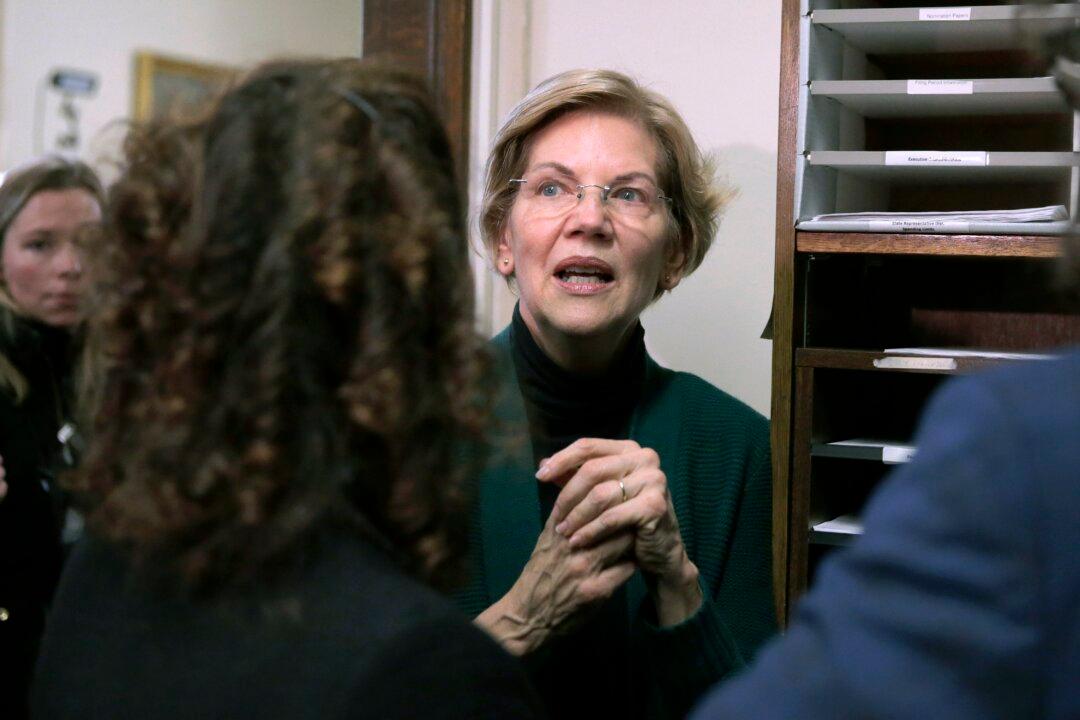After widespread backlash to her $52 trillion, 10-year Medicare for All plan, Sen. Elizabeth Warren (D-Mass.) now says she wouldn’t start implementing the program until at least two years had passed if she’s elected president.
Warren unveiled the plan on Nov. 1. She’s struggled when fielding questions about the massive proposal, which would see the government take over the healthcare industry, and faced criticism from a raft of fellow presidential contenders.





